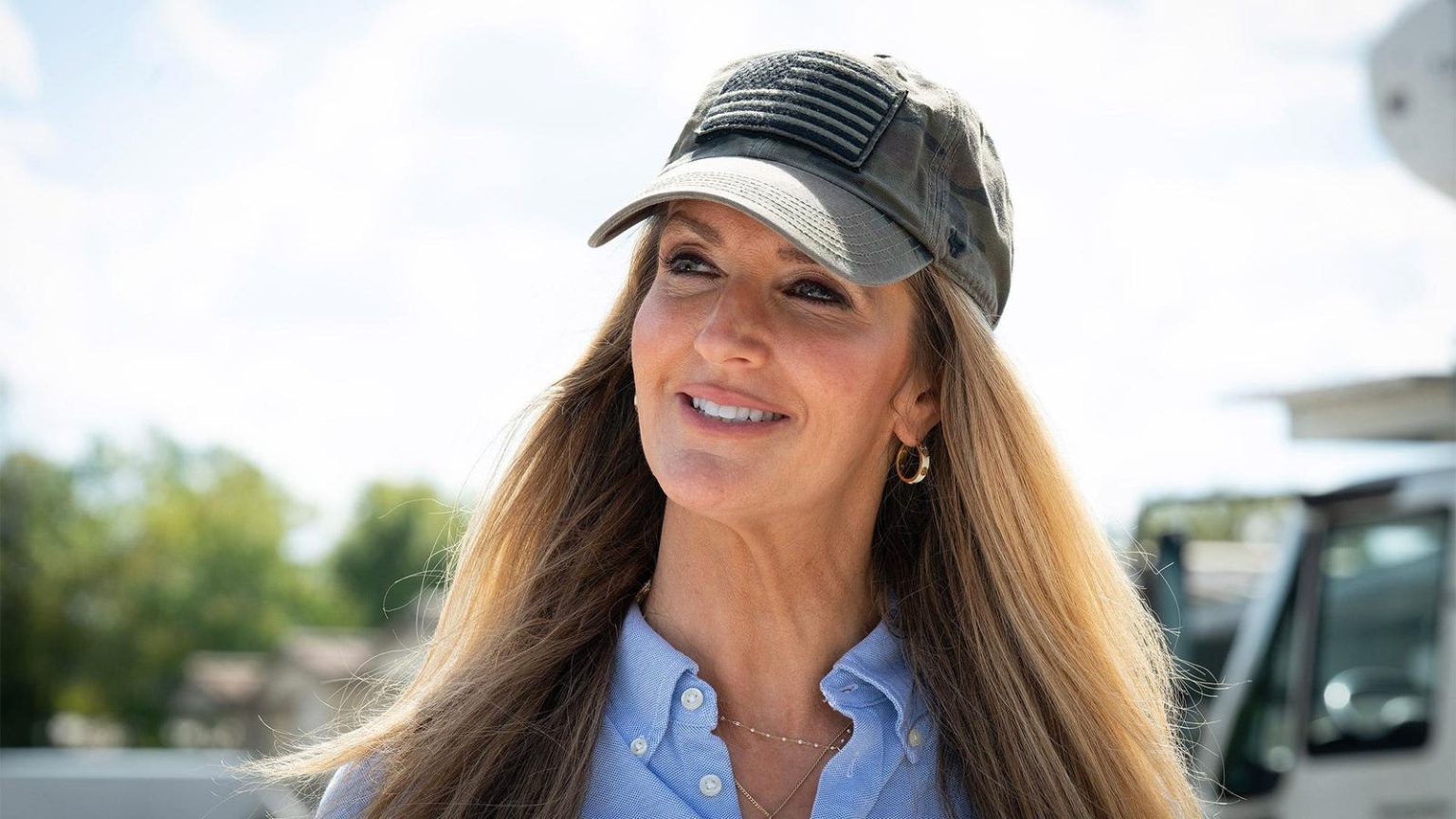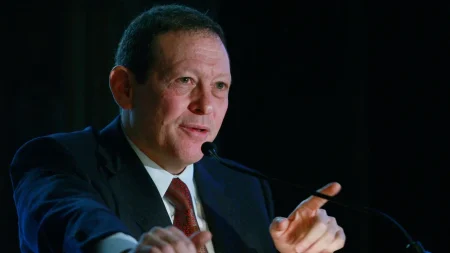From Farm to Finance to Politics: The Complex Trajectory of Kelly Loeffler
Kelly Loeffler, the former U.S. Senator from Georgia, frequently portrays herself as a self-made businesswoman whose journey began on a modest family farm and culminated in the highest echelons of finance and politics. While her career has undoubtedly been marked by success, particularly at Intercontinental Exchange (ICE), the parent company of the New York Stock Exchange, the reality is more nuanced. Loeffler amassed considerable wealth during her tenure at ICE, accumulating equity that allowed her to sell over $30 million in shares while retaining a substantial $12 million stake. However, the vast majority of her family’s fortune, including a sprawling 20,000-square-foot Atlanta estate, originates from her husband, Jeff Sprecher, the billionaire founder of ICE. Loeffler married Sprecher in 2004, two years after joining his company.
While Loeffler bristles at the notion that her financial achievements are tied to her husband, her subsequent ventures paint a more complicated picture. In 2018, she took the helm of Bakkt, a crypto startup, but her leadership resulted in significant financial losses. As Bakkt faltered, Loeffler pivoted to politics, making a substantial donation to Georgia Governor Brian Kemp, who subsequently appointed her to the U.S. Senate following the resignation of Senator Johnny Isakson. Loeffler’s Senate tenure was marked by controversy, including her outspoken skepticism about the 2020 election results and her opposition to the Black Lives Matter movement, which led players on the WNBA team she co-owned to actively campaign against her. She ultimately lost her Senate bid to Raphael Warnock, contributing to the Democratic Party’s gain of control in the U.S. Senate.
Despite setbacks in both business and politics, Loeffler’s considerable wealth and extensive network have afforded her new opportunities. Most recently, she was appointed to Donald Trump’s cabinet to lead the Small Business Administration (SBA), a surprising choice given her own struggles with small business ventures. This appointment has drawn both criticism and support, with some questioning her qualifications while others view her past failures as valuable learning experiences. Former Secretary of the Navy Richard Spencer, who has worked with Loeffler throughout her career, believes her setbacks make her a stronger candidate for the role. He argues that experiencing failure provides valuable insight into the challenges faced by small businesses.
Loeffler, a skilled communicator, has a talent for self-promotion, often presenting herself as a wealthy mogul rather than simply a corporate executive. Her narrative often emphasizes her humble beginnings on an Illinois family farm, while downplaying the scale of the operation, which reportedly encompassed 1,800 acres and a trucking business. After graduating from the University of Illinois with a business degree, she embarked on a career in finance, working at Toyota, Citigroup, and William Blair before joining a private equity firm in Dallas. It was there that she crossed paths with Richard Spencer, who later brought her to Intercontinental Exchange.
Loeffler’s account of her time at ICE often minimizes the company’s established position at the time she joined, portraying it as a small startup that she helped grow. In reality, ICE was already a profitable enterprise with over 200 employees and backing from major financial institutions. Her role focused on investor relations, a crucial function given the company’s high-profile investors. Loeffler’s relationship with Sprecher deepened during her time at ICE, culminating in their marriage shortly before the company’s initial public offering. Both Loeffler and Sprecher benefited significantly from the company’s growth and subsequent acquisition of the New York Stock Exchange.
Following her departure from ICE, Loeffler’s foray into the world of cryptocurrency with Bakkt proved less successful. Despite raising substantial capital, largely from ICE and related investors, the company struggled to generate revenue and accumulated significant losses. Her tenure as CEO was short-lived, coinciding with her appointment to the U.S. Senate. This transition sparked controversy due to the accelerated vesting of her equity awards in both Bakkt and ICE, leading to significant stock sales just before the Covid-19 pandemic triggered a market downturn. Allegations of insider trading followed, though Loeffler denied any wrongdoing, claiming her portfolio was managed by third parties without her direct involvement.
Her brief political career was further complicated by her stance on social issues, particularly her opposition to the Black Lives Matter movement, which alienated players on the Atlanta Dream WNBA team she co-owned. Despite significant financial investment in her Senate campaign, Loeffler lost the election to Raphael Warnock. Following her defeat, she sold her stake in the Atlanta Dream and shifted her focus to conservative political activism. She founded Greater Georgia Action, a nonprofit aimed at voter registration and bolstering election confidence, and joined the board of PublicSquare, a conservative e-commerce company. Her recent appointment to head the SBA under the Trump administration marks her return to the public sector, a move that has raised questions given her mixed track record in both business and politics. The potential acquisition of Bakkt by Trump Media and Technology Group adds another layer of complexity to her story, raising questions about the future of the struggling crypto company and its potential intersection with the incoming administration.










